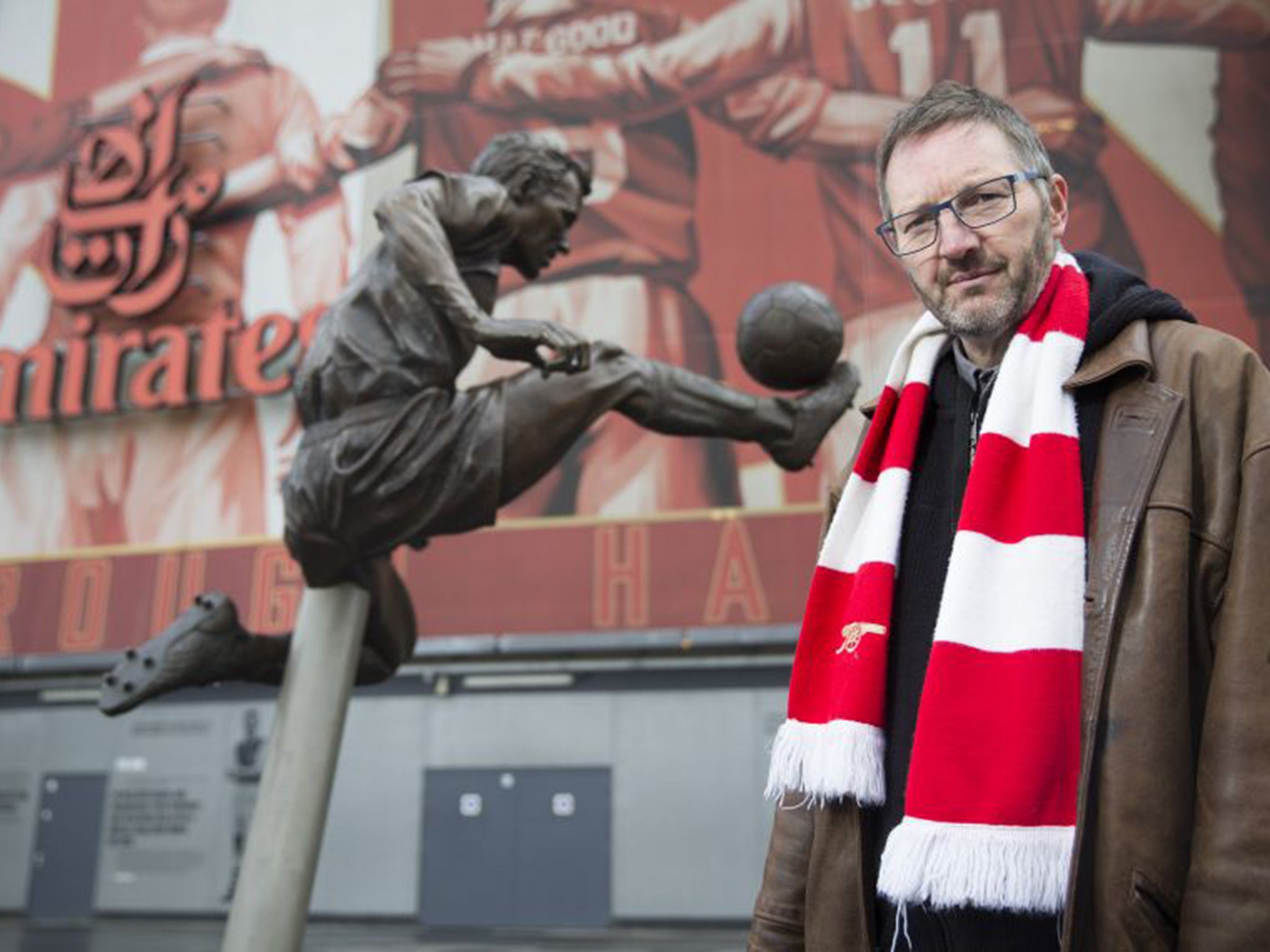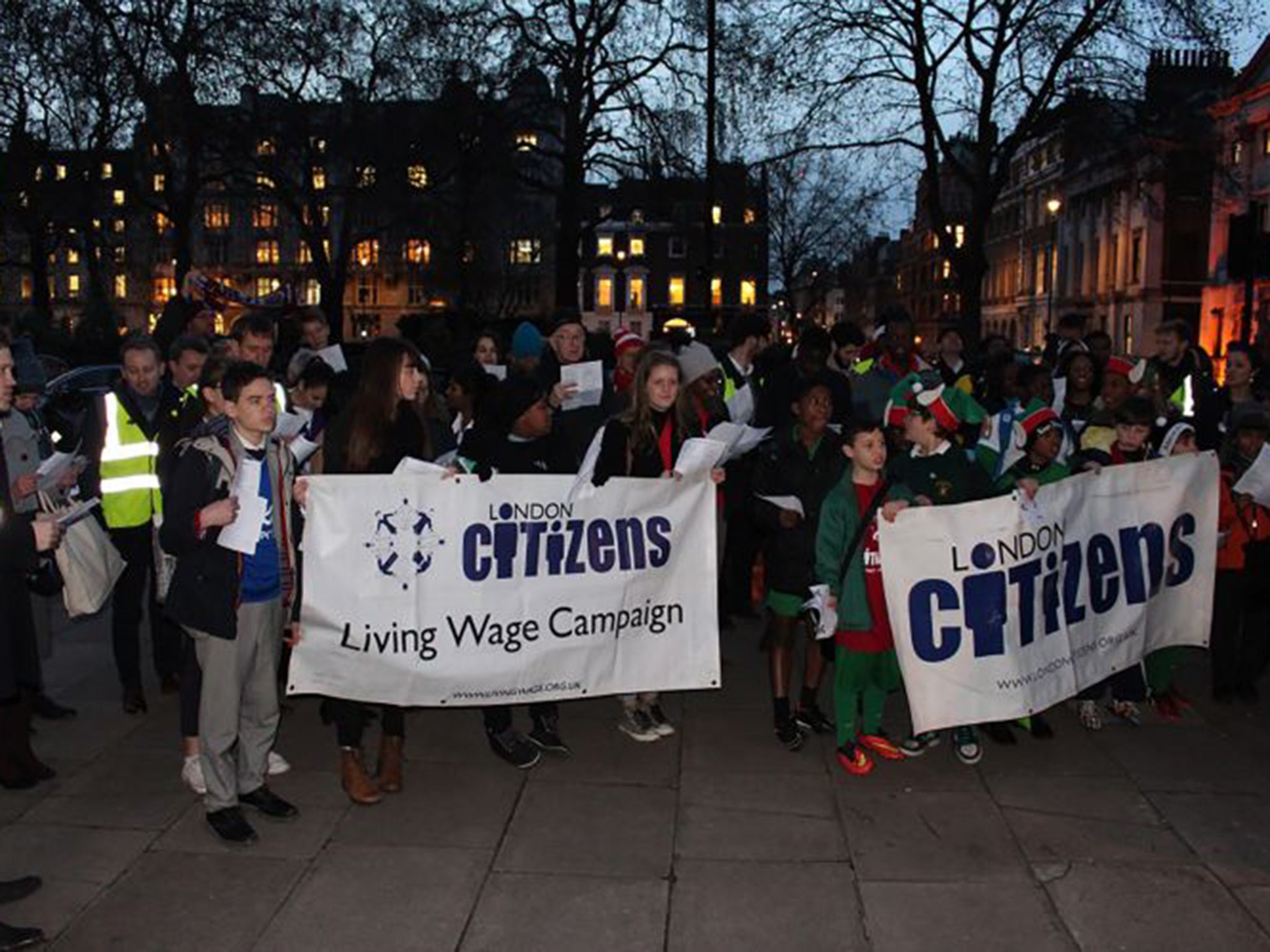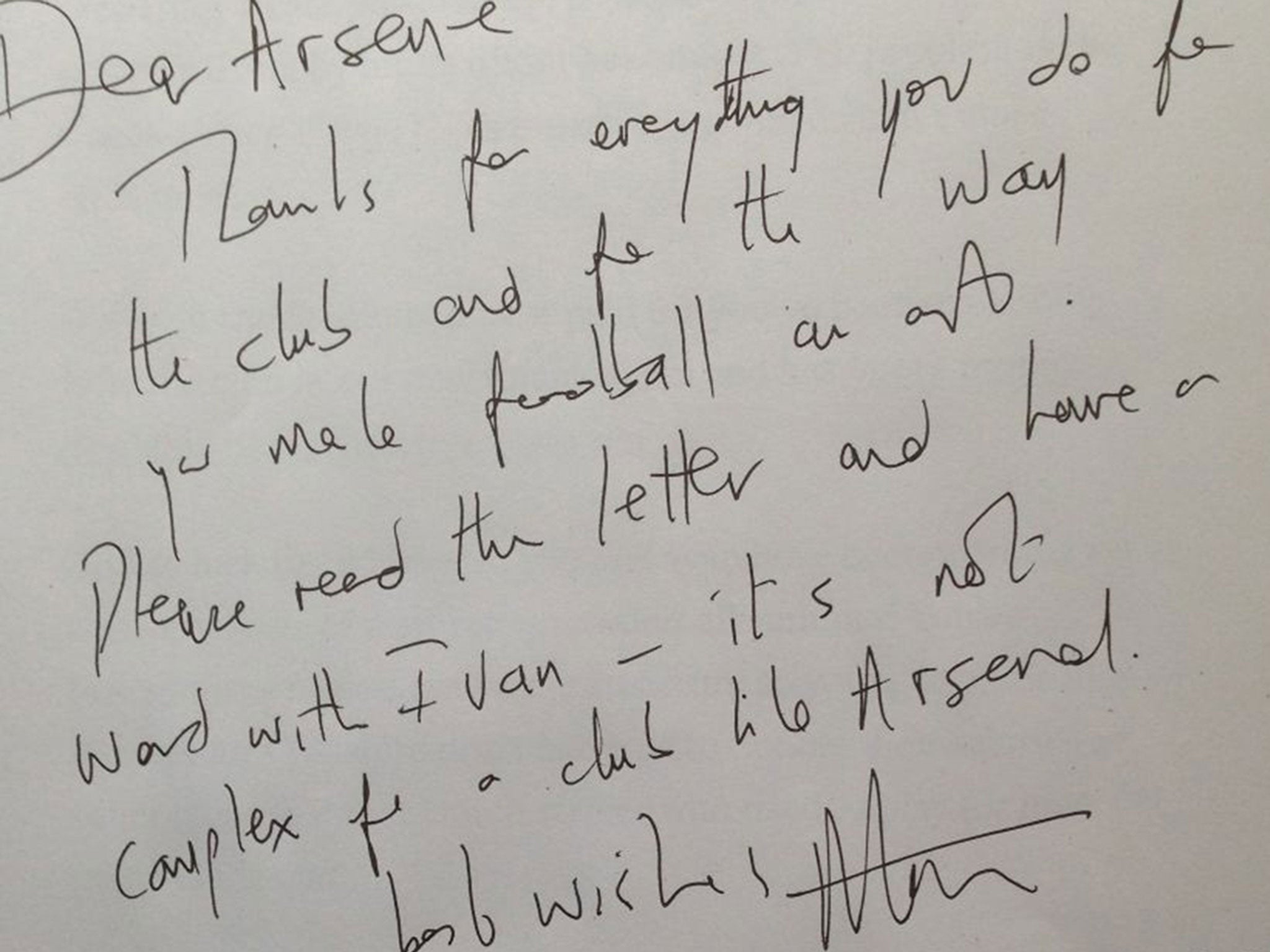Football supporters across the country are urging their teams to play fair - and pay staff the living wage
As multimillionaire players work cheek by jowl with those who cannot afford to raise their families, the fans are taking action

Alexis plays football for a living. He has come a long way from the dust bowl in rural Chile where he grew up to the spectacular Emirates Stadium in London, where he plays for one of the world’s richest teams. He lives in a plush home, drives an expensive car and earns £180,000 a week.
Raja works for the same football club, Arsenal. He walks to the stadium on match days. He does the washing up, prepares food and drink and serves the fans, sometimes the players too. He does whatever his contractor tells him to do, and is paid by the hour, at the minimum legal rate of £6.50. That’s not enough for a man in his forties, as Raja is, to raise a family, even if he scrimps and saves. Not in London.

Sometimes Raja gets caught up in the excitement when Arsenal win and the season ticket holders – who pay a couple of grand a year – are bouncing up and down with joy. Sometimes he is delighted to serve Alexis Sanchez and his multimillionaire friends a drink to celebrate in the players’ lounge afterwards. But sometimes he looks at the astonishing wealth around him and wonders where his family’s next meal is coming from.
“It’s not fair,” says Martin Wroe, a friend of Raja who happens to be one of those season ticket holders. He walks to the stadium, too, from his home nearby. He is a supporter of the living wage campaign, which urges companies to pay their employees enough to live on. The experts say this constitutes £9.15 an hour in London and £7.85 outside the capital – and football fans across the country are now urging their teams to play fair.
So far, only Chelsea have signed up to pay the living wage, despite football having become rich beyond even its own opulent dreams. The Premier League has just sold the television rights for three seasons for more than £5bn.
The chief executive Richard Scudamore – who is thought to be on nearly £2m a year – told the Today programme on Wednesday that the league was not set up as a charity, and it was not the job of football clubs to raise the minimum wage. “That’s entirely for the politicians to do,” he said. “That’s not for us to do.”
But the tide may be turning this weekend. Yesterday, the co-owner of West Ham United, David Gold, announced on Twitter that all his employees, full and part time, would be on at least the living wage by June.
And the Premier League has told The Independent on Sunday that it again will meet campaigners, as some clubs look to follow suit. Arsenal are not believed to be among them, despite a remarkable campaign by Wroe and others.
Just before the FA Cup Final last year, Wroe wrote an emotional open letter on Raja’s behalf to the chief executive of Arsenal, a man called Ivan Gazidis, appealing to his sense of justice as a fellow Arsenal fan and a man whose parents fought courageously against apartheid in South Africa.
“Raja would need to work full time for a decade to earn what the mighty Mesut Ozil earns in a week,” wrote Wroe, referring to another of Arsenal’s highly paid superstars. “Now I love Mezut, there are days when I believe one of his passes proves the existence of God. And I’m guessing he’d help Raja himself if he bumped into him – but that would be charity and what Raja needs is justice,” he went on, before appealing directly to Gazidis himself. “That’s where you come in, just like your parents did when they faced down inequality and injustice all those years ago.”

Martin Wroe is an eloquent writer: he does it for a living. He is also an unpaid Anglican priest at a church near the stadium, so he is well aware of the jangle of inequality on those streets, with battered council flats hard up against gorgeous Georgian townhouses. He hand-delivered the letter to the Arsenal offices behind the stadium, and posted it online. The response was huge. It was shared by tens of thousands of fans from all kinds of clubs, and not only Arsenal, who feel the same way.
Andy Hull is a Labour member of the executive of Islington Council, which has put 98 per cent of its own staff and contractors on the living wage. “You’d have to work seven years without a break as a cleaner at the Emirates to earn what Ozil earns in a week. That is shameful, given the amount of money that is sloshing around in football,” he says. “It is about as grotesque an example as you can find of the inequality with which our society is riven.”
Inequality is a word none of our national politicians seems to want to say. And a lot of football supporters also have a bizarre blind spot when it comes to this. They will happily rage against fat-cat salaries and bankers’ bonuses, but rejoice when a new striker signs on an obscene wage, as Sanchez did for Arsenal last summer. One diehard Gooner who has a passion for social justice in the rest of his life told me: “I can’t afford to think about it or I would not be able to go and watch the team I love playing the sport I love. And anyway, what am I supposed to do?”
The Premier League often looks like a festival of greed, vanity and arrogance. Maybe he should walk away in disgust, as some have. Maybe he should buy one of those T-shirts from Philosophy Football that has a big red pound sign on the front and the words Against Modern Football. Or maybe he should demand more, as many Premier League fans do. They may feel unable on their own to resist the insane wages of the stars, but they can at least campaign to get fairer treatment for people like Raja, who serve them half-time pies and pints and clean the toilets.
The Living Wage Campaign was set up in 2001 by a group of east London parents who found themselves unable to make ends meet, despite doing two or three jobs. It has grown into a national movement, with figures calculated once a year by social policy experts at Loughborough University. This is not a party political issue: David Cameron, Boris Johnson and Nick Clegg are enthusiasts, as well as Ed Miliband.
Hundreds of firms across the country have now pledged to pay their people a living wage. Football has resisted so far, but a spokesman for the Premier League said on Friday that Manchester City and “several other clubs” were committed to paying the living wage to their direct employees, but they did not want to go public and be “used as campaign tools”.
The campaigners themselves are not satisfied. They say clubs should use their massive purchasing power to extend the living wage to contract workers like Raja too. The League itself already does that, said Dan Johnson, a spokesman. But he insisted it would be a mistake to think the organisation could tell its member clubs what to do.

Back at the stadium, the Arsenal Independent Supporters’ Association is preparing to hand out postcards calling for the club to back the living wage – ironically, at a game against the club from the ultimate tax haven, Monaco. Paul Matz, campaign organiser said: “We believe it is the right thing for Arsenal to do.”
Martin Wroe wrote another open letter at the start of the season. This time it was to Arsène Wenger, Arsenal’s manager, invoking his well-known thrift: “With your master’s degree in economics, you’ll appreciate that £6.50 an hour in London can leave you a little short.”
Again, there was a huge response online but none from the club. So this time he wrote to Sanchez, who grew up in poverty. “This is about the cleaners. The people you bump into most days at the Emirates or at training at London Colney. Maybe some days they remind you of the first cleaner you knew, your mother Martina, working all the hours God sent in your home town of Tocopilla in rural Chile.”
Martina washed fish and sold flowers, as well as cleaning, to feed the four children she was raising on her own. They all helped out. At the age of six, Alexis would do backflips for a few coins. Later he boxed on the street. At the age of 26, he still remembers. Like many Premier League players from poor backgrounds, Sanchez has a conscience and acts on it. Last winter he went back to Chile to pay for new football pitches for the children, so they don’t have to use rocks for goalposts as he did.
The letter was also posted in his native Spanish, but Sanchez did not reply. Arsenal said on Friday that it was trying to find the correspondence from Martin Wroe – the three letters delivered by hand. A spokesperson said: “Our employee remuneration packages exceed the requirement in the campaign. We work hard to ensure all our employees have a broad range of benefits as a result of their employment with us and they are among the most competitive in football. This will continue to be our approach.”
That’s not enough for those who want to see the club change. Sanchez will be there today, when Arsenal take on Middlesbrough. Raja will be in the stadium working hard behind the scenes and Wroe will be in his seat, waiting for an answer from Gazidis and Wenger.
He has hope. “This is how social change happens,” he says. “It is what we saw with the major banks. They all start off thinking, ‘No, we’re not doing this; it’s too complicated; it is inappropriate; this something for politicians to decide on, not us.’ But eventually they reflect on it and think, ‘Well, we may not agree but there is quite a lot of pressure outside, so let’s be pragmatic.’”
Football fans learn to be patient. Even Arsenal will have to yield eventually, he says. “At the point at which they are embarrassed, I imagine they will change their tune.”
Join our commenting forum
Join thought-provoking conversations, follow other Independent readers and see their replies
Comments